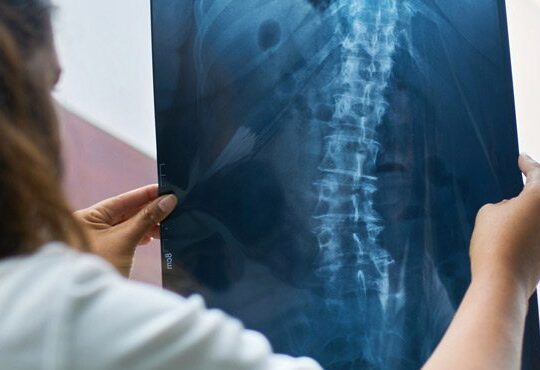New to TurboTax? File with expert help for $60.
Claiming Medical Expense Travel Credits
TurboTax Canada
October 1, 2020 | 3 Min Read
Updated for tax year 2024

Canada is vast and some of the most beautiful places in our great country to live are quite remote. One of the drawbacks of living outside a major city centre can be that if you need medical care, you may need to travel a long way to get it. Thankfully, depending upon how far you have to go for your care, the government of Canada may allow you to claim medical expense travel credits.
Many of the expenses that you may incur to travel for medical treatment or expenses that you incur on behalf of your spouse or dependants are tax-deductible. Eligible expenses may include transportation costs, meals, and accommodation for both the patient and an attendant if required. Let’s explore the allowed eligible expenses and how to claim them.
How Far Do I Need to Have Travelled to be Eligible for Claiming Medical Expense Travel Credits?
Anyone who has had to pay for parking at a hospital knows how expensive it can get. While it would be nice to be able to deduct those expenses, unless you travelled more than 80 km for medical care, your parking expenses aren’t deductible.
To claim transportation and travel expenses with the CRA, the following conditions must be met:
- There were no equivalent medical services near your home
- You took a direct route
- It was reasonable for you, under the circumstances, to travel to the place you did for those medical services
If you travelled at least 40 km (one way) to get medical services, you can claim the cost of public transportation (ex. bus, train, or taxi fare). If public transportation isn’t available, you may be able to claim vehicle expenses.
If you travelled more than 80 km (one way), you can claim vehicle expenses, accommodation, meals, and parking expenses.
Whether you travelled more than 40km or 80 km, if a medical practitioner has certified that you can’t travel without help, you may also claim the travel expenses you pay for an attendant.
How are Vehicle Costs Calculated by the CRA?
If driving to get medical care is necessary, you can claim the cost of fuel, oil, license fees, insurance, maintenance, and repairs, including parts. Depreciation, provincial tax, and finance charges are all eligible.
There are two methods to calculate vehicle expenses — the detailed and the simplified method. If you use the detailed method, keep track of the number of kilometres driven in the 12-month period you choose for medical expenses. Then, calculate the percentage of your total vehicle expenses that relate to the kilometres driven for medical treatment.
For example; if you drove 10,000 km during the year and 5000 of those kilometres were related to medical treatment (more than 40 km away), you can claim half of your total vehicle expenses on your tax return.
If you chose the simplified method, you only need to determine how many km you travelled for medical treatment in the 12-month period. Multiply the km by the rate for your province. The rates are different for each province or territory, are updated annually, and can be found at the Canada Revenue Agency’s website.
Whether you choose the detailed method or the simplified method, be sure to save all your receipts in case the Canada Revenue Agency (CRA) asks to see them later.
How do I Claim Meals?
- You need to have travelled more than 80 km for care to claim meals with the CRA. Just like vehicle costs, you can choose the use the detailed method or the simplified method.
- To use the detailed method, you tally the actual cost of each meal.
- If you choose the simplified method, you may claim up to $23 per meal, up to a maximum of $69 per day, including sales tax.
- Whether you choose the detailed method or the simplified method, be sure to keep those receipts.
What are the Rules for Accommodations?
- To claim accommodations, like meals, you need to have travelled more than 80 km for medical services.
- Accommodation claims are based on your receipts, and only the cost — with taxes — of the stay is eligible. Extra costs like room service, movies, and phone calls are not included.
Travel outside of Canada
Outside of Canada medical expenses may also be eligible. You have to meet all the following conditions:
- practitioners must be authorized in their country of service by law. In the case of hospital stays, the institution must be public or a licensed private hospital.
- the health care services you receive must not be available in your area, and you must be required to travel to access them.
Travel Companions
If your spouse, your common-law partner, or another individual travels with you, you may be able to include that person’s expenses as part of your medical expense tax credit. To include these expenses, you need to have a note from your physician or another authorized medical practitioner that certifies that you were unable to travel alone.
If you qualify, you can write off the cost of your travel companion’s transit tickets, accommodation, and meals, depending on how far you have travelled for your medical care.
Related articles

© 1997-2024 Intuit, Inc. All rights reserved. Intuit, QuickBooks, QB, TurboTax, Profile, and Mint are registered trademarks of Intuit Inc. Terms and conditions, features, support, pricing, and service options subject to change without notice.
Copyright © Intuit Canada ULC, 2024. All rights reserved.
The views expressed on this site are intended to provide generalized financial information designed to educate a broad segment of the public; it does not give personalized tax, investment, legal, or other business and professional advice. Before taking any action, you should always seek the assistance of a professional who knows your particular situation for advice on taxes, your investments, the law, or any other business and professional matters that affect you and/or your business.








